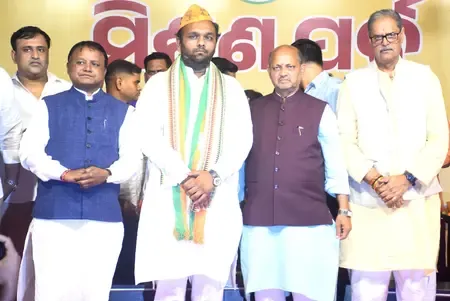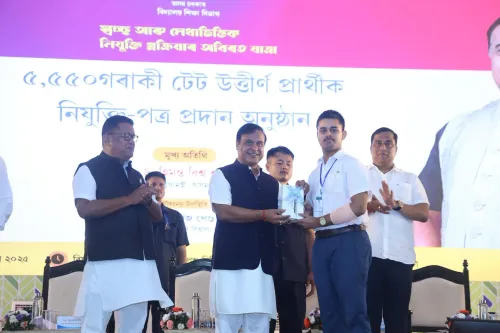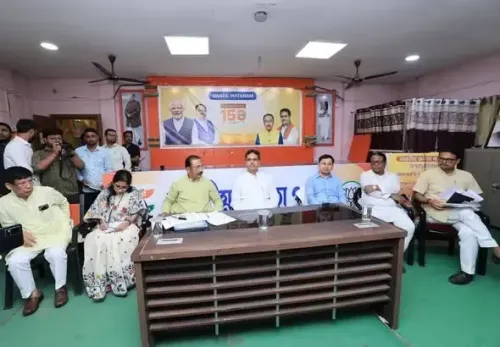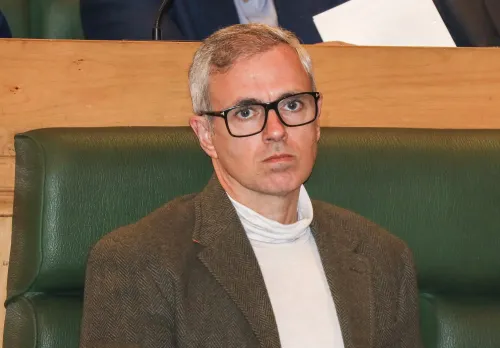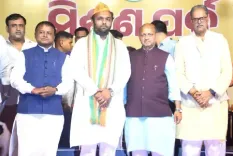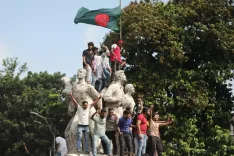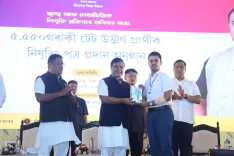Nadimarg Village in J&K Commemorates 24 Slain Kashmiri Pandits
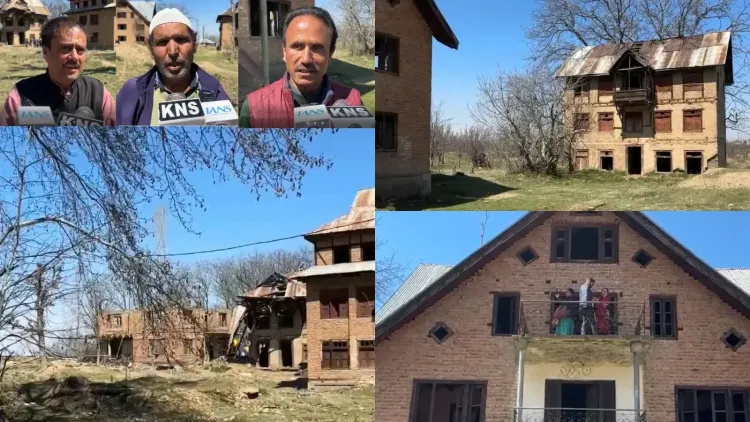
Synopsis
Key Takeaways
- Nadimarg village commemorated the 24 Kashmiri Pandits killed in 2003.
- Local Muslims participated in the memorial service, showing solidarity.
- The tragedy still evokes deep emotions 21 years later.
- Kashmiri Pandits have returned to their roots to pay homage.
- The event emphasized the message that terrorism transcends religion.
Srinagar, March 23 (NationPress) A gathering of numerous migrant Kashmiri Pandits took place on Sunday in Nadimarg village, located in the Pulwama district of Jammu and Kashmir, to honor 24 members of their community who were brutally murdered by terrorists on this very date in 2003.
The painful memories of that horrific event and the cold-blooded killing of 24 innocent civilians remain ingrained in the abandoned mud houses that stand as silent witnesses to the tragedy that struck this village in 2003.
On March 23, 2003, militants from Lashkar-e-Taiba (LeT) invaded this quiet village, where local Muslims and Pandits had coexisted peacefully for generations.
Kashmiri Pandits, including men, women, and children, were forcibly taken from their homes around 11 p.m., lined up, and shot without mercy.
Even after 21 years, recalling that tragedy brings tears to the eyes of local Muslims, as if the horrific events were unfolding anew.
This year marks the first time since 2003 that Kashmiri Pandits have chosen to return to the village to pay their respects to the martyrs at ground zero.
Until this year, memorial services were conducted in Jammu by the displaced Pandits to remember their lost kin.
However, this year, they opted to hold the memorial service in Nadimarg village.
Prayers were offered for the innocent victims, and local Muslims embraced, cried, and mourned as the presence of Kashmiri Pandits in Nadimarg revived the painful memories of that fateful day.
The tribute shared by both Kashmiri Pandits and local Muslims has unequivocally demonstrated that a terrorist has no religion.
In an interview with IANS, Bhushan Lal Bhat, a villager who relocated to Jammu after 2003, stated, "We used to hold our tributes in Jammu, but this time we felt compelled to honor the martyrs here. All that transpired on this day 23 years ago, when Kashmiri Hindus, who remained here despite the migration, were dragged from their homes and killed at this very spot at 11 p.m."
"The place where we were born, raised, and called home, including the temple, is where everything was. Naturally, we long for this place. The vacant and charred homes narrate a story that needs no elaboration," he added.
Another Kashmiri Pandit recounted his traumatic experience to IANS, saying, "At that time, I was around 15-16 years old. Even after the genocide, we stayed here. But another dreadful night came on March 23, when Kashmiri Pandits were mercilessly pulled from their homes and killed."
"The terrorists abducted 26 individuals and brutally murdered them here. Among those victims were a 2-year-old child and an 80-year-old woman; all were slain," he continued.
A local Muslim offered his condolences to the deceased Kashmiri Pandits.
Speaking to IANS, he said, "They were like family to us; genuinely kind individuals. We were deeply saddened by what occurred. We are truly glad they came here today."
"We used to live together in harmony—Hindus and Muslims alike. However, the night of March 23 changed everything," he added.
The victims had no ties to militancy or anti-militancy efforts.
While most Kashmiri Pandits had fled the Valley in the early 1990s, the Pandits of Nadimarg chose to remain.
The most profound shock from that tragedy was felt by the Muslim neighbors of the victims. Local Muslims had encouraged and supported the Nadimarg Pandits to stay in their homes.
In this village, Muslims and Pandits coexisted as brothers. Religion was never an obstacle to their camaraderie and friendship.
In a single burst of the terrorists' gunfire on March 23, 2003, Nadimarg lost its innocence.
The emergence of a terrorist brings calamity to his so-called co-religionists more significantly than to anyone else.

